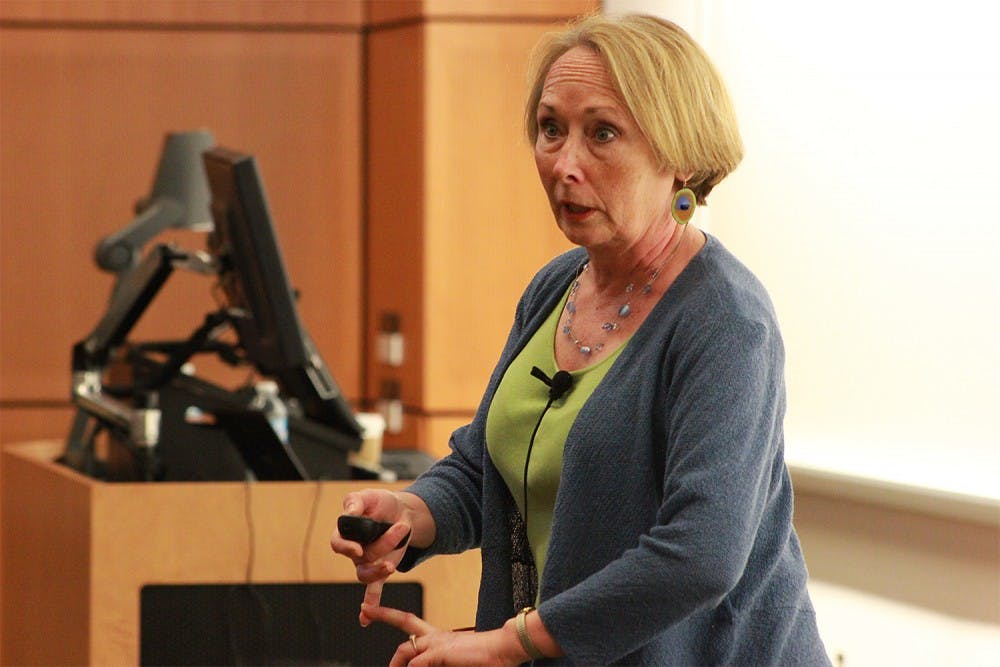Young has spent years studying what she calls the “impostor syndrome,” which she said makes people feel inadequate compared to their peers.
Graduate students, Ph.D. candidates and faculty members crowded into the Koury Oral Health Building’s Kirkland Auditorium to hear Young speak on the effect that going to a school like UNC has on students’ confidence.
“Academic culture in and of itself fuels self-doubt,” Young said.
Young said students often feel they don’t truly belong.
“If you think that you are just flying under the radar, undetected, what’s your biggest fear? Being discovered,” she said.
University Career Services worked alongside UNC Training Initiatives in Biomedical & Biological Sciences to bring Young to campus, TIBBS director Erin Hopper said.
“It’s something we had in mind for years, mostly because we knew many graduate students and postdocs have those feelings,” Hooper said.



